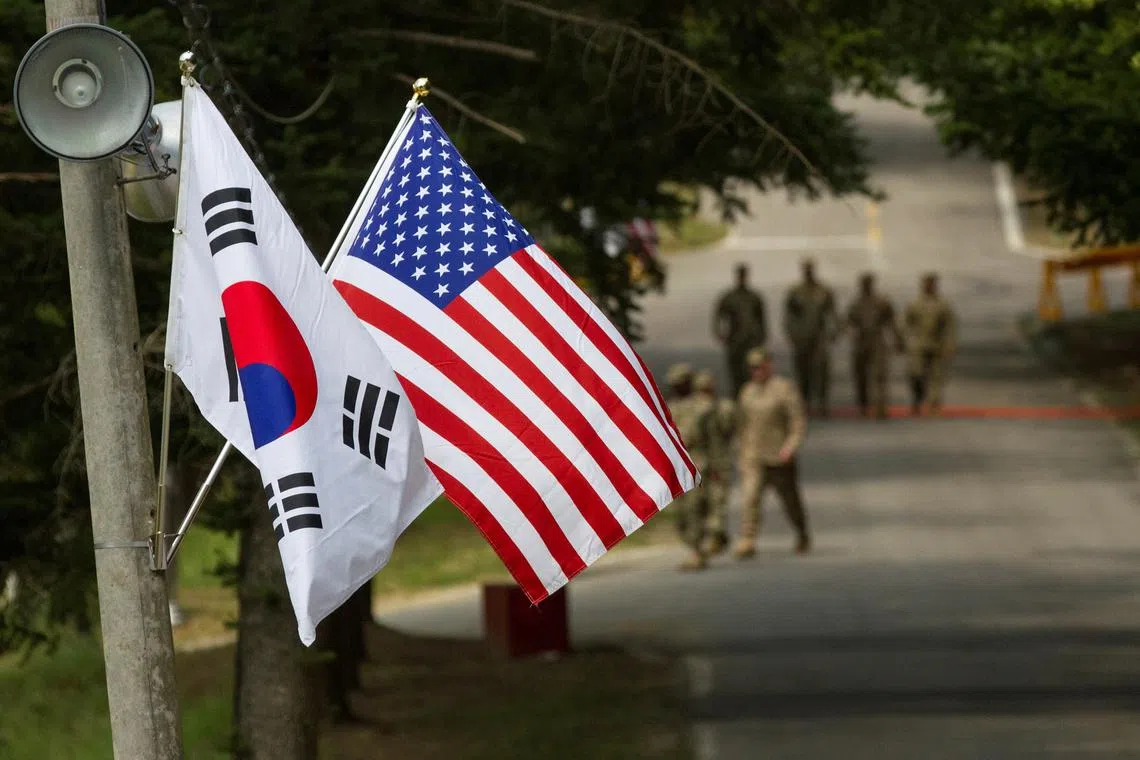US, South Korea reach troop-funding deal ahead of US election
Sign up now: Get ST's newsletters delivered to your inbox

South Korea will raise its share of the costs of hosting US forces on the Korean Peninsula by 8.3 per cent in 2026, compared with the previous year.
PHOTO: REUTERS
Follow topic:
SEOUL – The US and South Korea have reached a new cost-sharing deal for hosting American forces on the Korean Peninsula, just a month ahead of the US election.
Under the new five-year agreement of the Special Measures Agreement, South Korea will raise its share of the costs by 8.3 per cent to 1.52 trillion won (S$1.47 billion) in 2026, compared with the previous year, according to a statement from South Korea’s Foreign Ministry released on Oct 4.
The amount for the four years after that will reflect the increase in inflation, capping the annual rise at 5 per cent, the statement added.
US State Department spokesman Matthew Miller said in a separate statement that “the agreement will be a significant accomplishment for both sides, and will strengthen our alliance and our shared defence”.
The early resolution of cost-sharing for the coming years means the winner of the US election will face a clear hurdle if the new president intends to demand a higher contribution from Seoul. The sharing of costs for hosting US troops in South Korea was a bone of contention for the previous US administration of Donald Trump.
At that time, Trump asked South Korea to contribute about US$5 billion (S$6.51 billion) for hosting around 28,000 American military personnel, well above the one-year deal in effect from 2020 where Seoul paid about US$1 billion.
The latest deal may be part of efforts to cement progress achieved during the Biden administration in deepening relations between the US and South Korea, and also Japan, before the US election.
While US Vice-President Kamala Harris is seen as largely sticking to the current direction of security policy if she wins, Trump has repeatedly called out US allies for not spending enough on defence arrangements.
The US, Japan and South Korea signed a deal in July on joint military training at a rare meeting in Tokyo, seeking to lock in gains for security cooperation and elevate military alliances before the US election. BLOOMBERG

